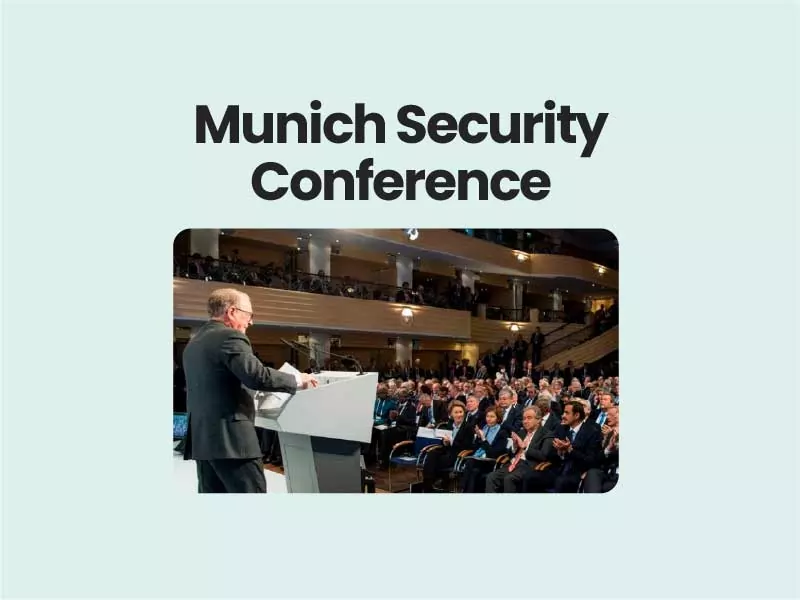Companion@360 → 7 Month programme to sharpen your writing skills → REGISTER NOW

Munich Security Conference
The Munich Security Conference has developed into the most important independent venue for international security policy decision-makers to exchange ideas during the last four decades.
Every year, it brings together over 350 top officials from over 70 countries to engage in a discussion on various security concerns.
Heads of state, international organizations, and governments as well as members of parliament, ministers, high-ranking military representatives, civil society, science, the media, and business are among those expected to attend this conference.
The conference takes place every year in February in the Bayerischer Hof Hotel in Munich, Germany.
The conference arose from Ewald-Heinrich von Kleist-Internationale Schmenzin’s Wehrkundebegegnung / Münchner Wehrkundetagung, which he created in 1963.
The Stauffenberg circle of resistance fighters advocated for the prevention of future military confrontations such as the Second World War and gathered together leaders and professionals in security policy to do so.
Henry Kissinger and Helmut Schmidt were among the 60 people who attended the inaugural meeting.
Von Kleist headed the meetings until 1997 when he was succeeded by politician and business manager Horst Teltschik, who led them from 1999 to 2008.
Wolfgang Ischinger, a veteran diplomat, has led the conference since 2009.
This conference has been cancelled twice, once in 1991 because of the First Gulf War and again in 1997 due to Kleist-Schmenzin’s retirement.
The Security Conference started in the year 1999 under Teltschik’s leadership for military, political, and business leaders from Eastern and Central, as well as India, the People’s Republic of China and Japan.
Senior politicians, diplomats, military and security experts from NATO and the European Union, as well as other countries such as India, China, Japan, Iran and Russia, are invited to discuss current issues in defence and security policies at this conference, which is themed peace through dialogue.
The conference’s goal is to address current major security concerns and evaluate major security difficulties, all while sticking to the concept of networked security.
The discussions of ideas on the future of transatlantic relations, as well as European and global security in the twenty-first century, are a focal feature of the conference.
Since the conference is privately organised, it is not a government-sponsored event. It is just used for debate; there is no authorization for binding intergovernmental decisions.
The high-level meeting is also used for private conversations among the attendees.
Read Also Competes Act
